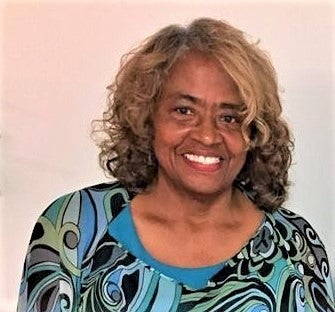All I really needed to know
Published 3:38 pm Monday, September 4, 2023
|
Getting your Trinity Audio player ready...
|
As September brings children back to school, I pray for a healthy, safe and prosperous year of academic excellence of learning for all.
I remember with grand fondness the decades that I taught very young children and what September meant for me.
One of my favorite books is ‘All I Really Need To Know I Learned In Kindergarten’ by Robert Fulghum. The title of the book summarizes some of the first lessons learned in kindergarten, and explains how the world could be improved if adults adhered to the same basic rule’s children are taught in their early education, i.e.; sharing, being kind to one another, cleaning up the mess they made, saying sorry when you hurt somebody, and playing fair to mention a few of the concepts.
As an early education teacher, I can tell you, I spent the first few days presenting the same ideals to my students.
On the first day of class, I taught my students the word EXIT. I needed them to know the word, what it meant and why it was important. In case of danger, they needed to know how to safely navigate their way out the building. I also told them there would be many situations in life, while not a fire drill, they would need to know how to get themselves out of danger, and that danger could include someone being mean or cruel. That they would sometimes need to ‘EXIT’ a conversation or situation where they are being bullied. And I told them what those ‘big words’ meant.
I taught them to play fair, to take turns, don’t take things that didn’t belong to them, and not to destroy someone’s art projects because they didn’t like it. I taught them that teasing and bullying is not a sign of a good person. That they shouldn’t bully somebody because they thought their own lunch boxes, shoes, toys, houses or ideas were better than someone else’s.
I taught them to ask questions, especially if they are confused or needed more information about something. I wanted them to know that asking questions can keep a lot of confusion down.
One day one of my students came to me very upset saying that someone bullied them about not knowing the President’s real name. “Well, who did you tell them the President was I asked?” Mr. George W. Bush the child answered. “That is correct I said, that is what I taught you. Well, who did the child say the President was?” I asked curiously.” ” Sam”, (the class bully as perceived by the kids) said “it was Richard Stands” my sobbing student replied. “Okay I will take care of it” I said reassuringly.
I called Sam over to my side and quietly asked who is the President to this country? He stuck his chest out proudly and said, “President Richard Stands!” Where did you get that information? I asked. He said, “because every morning when we say the Pledge of Alliance we say, “one Nation under God for Richard Stands.” That day, I helped the class learn how sometimes people can misunderstand something, or deny the truth, and then bully people into believing they are right which could cause pain for someone else.
Children can easily misunderstand something, and it is our duty as adults to help them learn. I expect this behavior from children. But as adults we can be the same as children who don’t have all the information they need to say or do something.
There are many things in life where we can see how the vitriol of misunderstanding can cause pain for others. I wonder if the simple life lessons we learned when we were very young would make things better if we put them into practice as adults.
And yes, I have learned many things from children. Working with kindergarteners has helped me to grow wise.
Leesa Jones is the co-curator of the Washington Waterfront Underground Railroad Museum.






